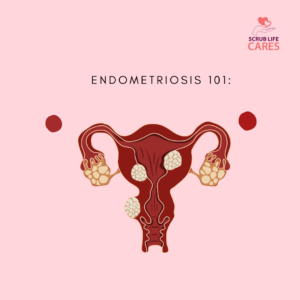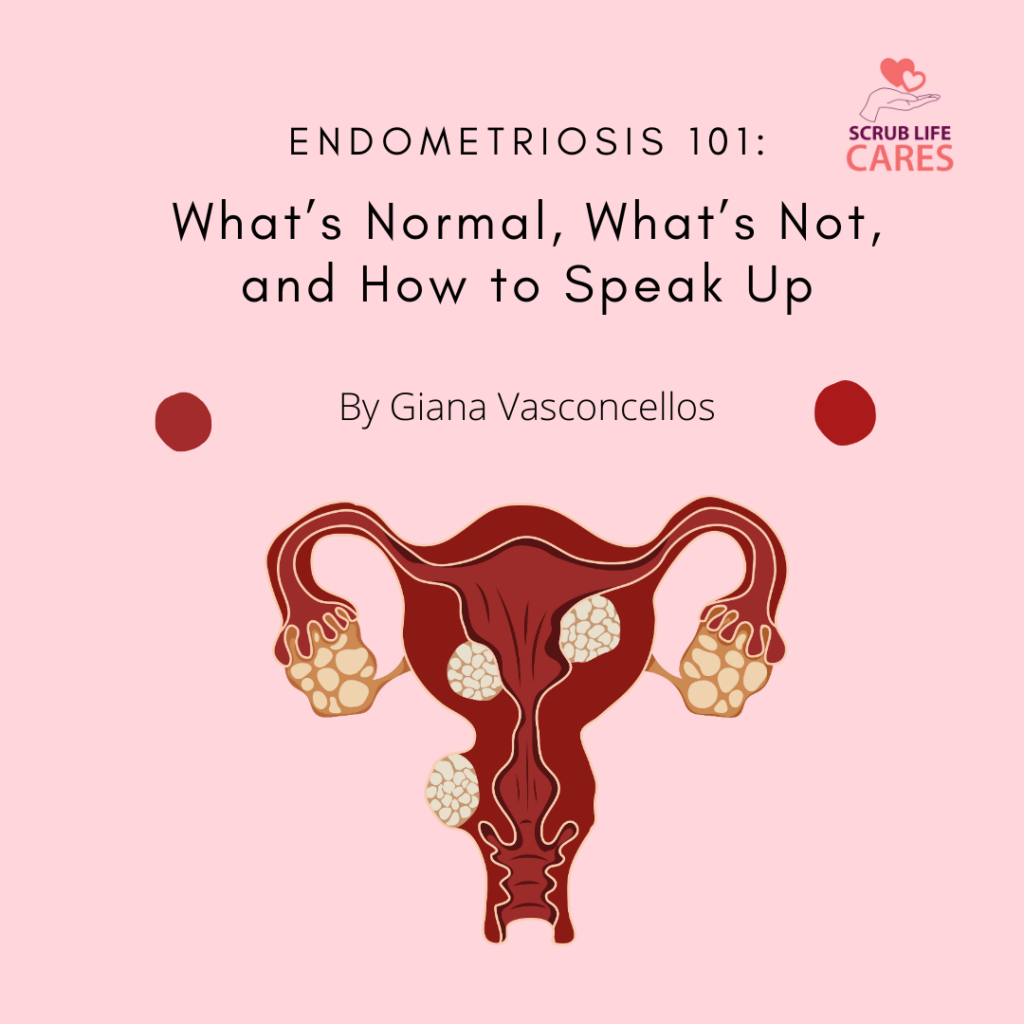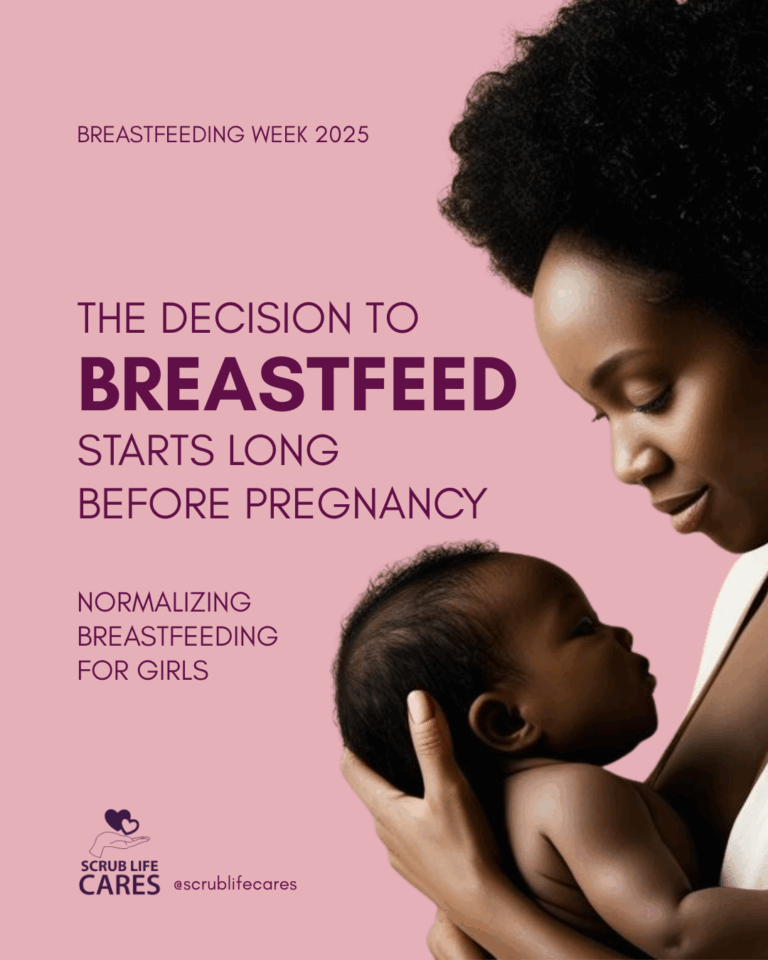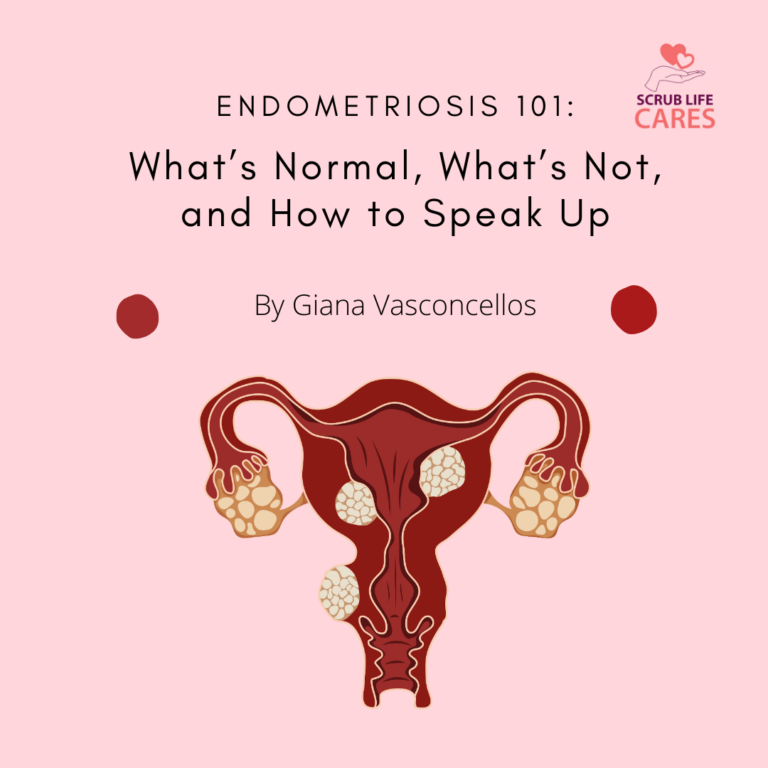You’ve probably heard that periods are supposed to hurt; the pain is normal because someone might have told you it is. Maybe someone told you to just pop an ibuprofen, use a heating pad, and power through. But what if your cramps feel like someone is stabbing you from the inside? What if you’re so wiped out you can barely get out of bed? Or what if your period is so heavy you have to change your pad or tampon every hour? What if your period is interrupting everyday life in a negative way?
If you’re reading this shaking your head and thinking, ” Yes, yes, yes,” it’s time to talk about endometriosis—a condition that affects millions of people but often goes undiagnosed for years (yes, years). Let’s break it down: what it is, how to recognize it, and how to bring it up with your parents or doctor.

What Is Endometriosis?
Endometriosis (or “endo” for short) happens when tissue similar to the lining of your uterus grows in places it shouldn’t—like your ovaries, fallopian tubes, or even your intestines. This tissue thickens, breaks down, and bleeds just like the lining inside your uterus, but the blood has nowhere to go. That can lead to inflammation, scarring, and serious pain.
It’s not just a “bad period” problem—endo can also mess with your digestion, energy levels, and even your ability to have kids later on. The sooner you catch it, the better.
Signs You Might Have Endometriosis
Endo symptoms can show up differently for everyone, but here are some red flags to watch for:
- Extreme period pain that can’t be managed with over-the-counter meds
- Painful sex, tampon use, or pelvic exams
- Super heavy periods (changing a pad/tampon every 1-2 hours)
- Bloating that makes you look pregnant (some call it “endo belly”)
- Chronic fatigue (like, totally drained even with enough sleep)
- Digestive issues (bloating, constipation, diarrhea, or nausea)
- Pain when peeing or pooping—especially during your period
If you’re still nodding along to more than one of these, it’s worth looking into.
How Is Endo Diagnosed?
Now, testing is not a quick test for endometriosis. Doctors usually diagnose it through a combination of:
Symptom tracking – They’ll ask about your period pain, digestion, and overall health.
Pelvic exams or ultrasounds – These can rule out other issues, but they don’t always catch endo.
Laparoscopy – A minor surgery where a doctor looks inside your abdomen and removes abnormal tissue if needed. This is the only way to confirm endo for sure.
How to Regulate Your Hormones Naturally
While there’s no cure for endo, managing your hormones can help ease symptoms. Here are a few ways to support your body:
Eat for hormone balance – Cut back on processed foods and eat more fiber (fruits, veggies, whole grains) to help your body process excess estrogen.
Manage stress – Chronic stress can throw off your hormones, so try deep breathing, journaling, or gentle movement like yoga.
Prioritize sleep – Your hormones reset while you sleep, so aim for 7-9 hours each night.
Move your body – Low-impact exercises like walking, swimming, or pilates can reduce inflammation and ease pain.
How to Talk to Your Parents or Doctor
It can feel super awkward bringing up period problems, but trust me—your health is important. Here’s how to make it easier:
Talking to your parents: Try saying, “I’ve been having really painful periods, and it’s making school/life hard. I think I need to see a doctor.” You can also show them this article to help explain.
Talking to a doctor: Keep a symptom journal with details about your periods, pain levels, and other symptoms. If your doctor brushes you off, don’t be afraid to push back or ask for a referral to a specialist.
You Deserve to Feel WELL
If you think you might have an endo, don’t ignore it. Advocate for yourself, do your research, and don’t stop until you get the care you need. Painful periods aren’t normal, and you don’t have to suffer in silence.
N.B.This blog is not meant to substitute medical advice, nor does the advice in this blog cure or treat disease.






